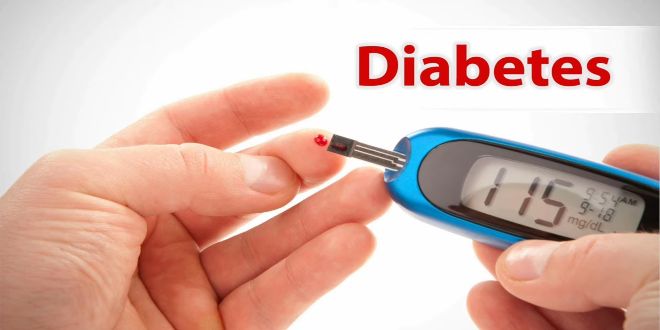Hey there, I’ll be shedding light on the top ten fruits with low glycemic index, making them perfect choices for individuals managing diabetes. With so much conflicting information out there, it can be challenging to discern which fruits are truly diabetic-friendly. That’s why I’ve compiled this comprehensive guide, drawing insights from reputable sources such as the Food and Drug Administration, the American Diabetes Association, and the Indian Journal of Nutrition and Dietetics.
Let’s start by understanding what exactly glycemic index (GI) entails. Essentially, GI measures how quickly and significantly a particular food raises blood glucose levels after consumption. Foods with a high GI value cause rapid spikes in blood sugar, whereas those with a low GI value lead to more gradual and steady increases.
Top 10 Fruits with low Glycemic Index
Now, let’s delve into the top ten fruits with low glycemic index:
1. Guava
With a glycemic index of 31, guava earns its title as a diabetic superfood. Packed with fiber, vitamin B, and vitamin C, this fruit makes for a nourishing addition to your diet.
2. Apricot
Boasting a GI of 32, apricots are abundant in beta-carotene, vitamin A, vitamin C, and polyphenol antioxidants. Aim to consume 3 to 4 apricots daily to reap their health benefits.
3. Apple
An apple a day truly keeps the doctor happy, especially with its GI of 36. Rich in fiber and low in calories, apples are a delicious and nutritious snack choice.
4. Black Plum (Jamun)
Revered as the fruit of the gods, black plum has a GI of 40 and is teeming with iron, calcium, vitamin C, and vitamin B. Incorporate this flavorful fruit into your diet for its myriad health perks.
5. Avocado
With a GI of 41, avocados are a powerhouse of nutrients, including vitamins C, E, and K, beta-carotene, and omega-3 fatty acids. Enjoying one avocado daily can work wonders for your health.
6. Orange
Bursting with vitamin C, folic acid, and potassium, oranges have a GI of 43. Indulge in one orange per day to boost your immune system and overall well-being.
7. Strawberry
With a GI of 44, strawberries are not only delectable but also rich in vitamin C, magnesium, and potassium. Munching on 8 strawberries daily is a delightful way to support your health goals.
8. Kiwi
With a GI of 47, kiwis are brimming with fiber, vitamin C, vitamin K, and folic acid. Incorporating one or two kiwis into your daily routine can provide a significant nutritional boost.
9. Fig
Fig, with a GI of 51, is a treasure trove of essential minerals such as potassium, calcium, magnesium, and iron. Enjoying 3 to 4 figs per day can contribute to your overall well-being.
10. Papaya
Rich in vitamin C, vitamin A, and antioxidants, papaya has a GI of 55. This tropical delight is a delicious and nutritious addition to any diet, particularly for those managing diabetes.
These ten fruits with low glycemic index are not only favored by nutritionists but are also considered diabetic-friendly. By incorporating them into your daily diet in moderation, you can indulge in their sweet goodness while supporting your health and wellness journey.

The Worst Fruits for Diabetics: What You Need to Know
For individuals managing diabetes, making informed choices about diet is crucial to maintaining stable blood sugar levels and overall health. While fruits are generally considered nutritious and an essential part of a balanced diet, not all fruits are created equal, especially for those with diabetes. In this article, we’ll delve into the fruits that are often considered the worst choices for diabetics, providing valuable insights to help you make informed decisions about your dietary intake.
Understanding the Impact of Fruits on Blood Sugar
Before we explore the specific fruits to avoid for diabetics, it’s essential to understand the concept of glycemic index (GI). The glycemic index measures how quickly and significantly a particular food raises blood glucose levels. Foods with a high GI value cause rapid spikes in blood sugar, which can be particularly problematic for individuals with diabetes.
Fruits to Approach with Caution
- Watermelon
While refreshing and hydrating, watermelon has a high glycemic index, which means it can cause a rapid increase in blood sugar levels. It’s best for diabetics to consume watermelon in moderation and pair it with protein or healthy fats to mitigate its impact on blood sugar. - Pineapple
Although pineapple is a tropical favorite known for its sweetness and tanginess, it also ranks high on the glycemic index scale. Diabetics should limit their intake of pineapple and opt for smaller portions to avoid significant spikes in blood sugar levels. - Mango
Another delicious yet high-GI fruit is mango. While rich in vitamins and antioxidants, mangoes can cause a rapid increase in blood sugar levels, making them less suitable for individuals with diabetes. Moderation is key when enjoying mangoes as part of a diabetic-friendly diet. - Bananas
Bananas are a convenient and nutritious snack choice for many, but they also have a relatively high glycemic index. Diabetics should be mindful of portion sizes when consuming bananas and consider pairing them with protein or healthy fats to help balance their impact on blood sugar levels. - Grapes
Grapes, particularly when consumed in large quantities, can lead to significant spikes in blood sugar due to their natural sugar content. While grapes offer various health benefits, diabetics should limit their intake and opt for smaller servings to manage their blood sugar effectively.
Strategies for Managing Fruit Consumption
While the fruits mentioned above may not be the most diabetes-friendly options, it’s essential to remember that moderation is key. Here are some strategies for incorporating fruits into a diabetic-friendly diet:
- Portion Control
Pay attention to portion sizes and aim for smaller servings of high-glycemic fruits. - Pairing with Protein or Healthy Fats
Pair fruits with protein-rich foods or healthy fats to help slow down the absorption of sugar into the bloodstream. - Choose Lower-Glycemic Options
Opt for fruits with a lower glycemic index, such as berries, cherries, and citrus fruits, which are less likely to cause spikes in blood sugar levels.
Conclusion
While fruits are an integral part of a healthy diet, individuals with diabetes need to be mindful of their choices to manage their condition effectively. By understanding the glycemic index of fruits and making informed decisions about portion sizes and combinations, diabetics can enjoy the nutritional benefits of fruits while maintaining stable blood sugar levels. As always, consult with a healthcare professional or registered dietitian for personalized guidance on managing diabetes through diet and lifestyle choices.
 Orlistattab
Orlistattab





